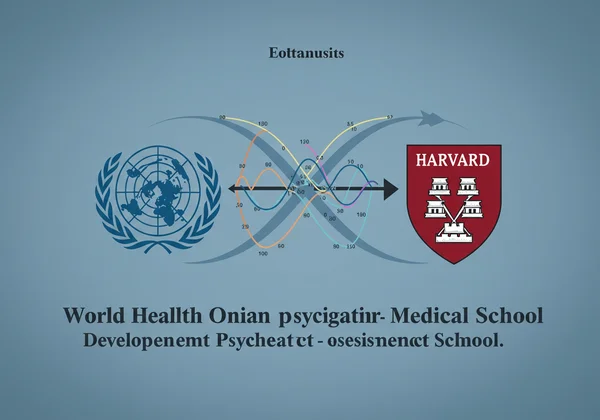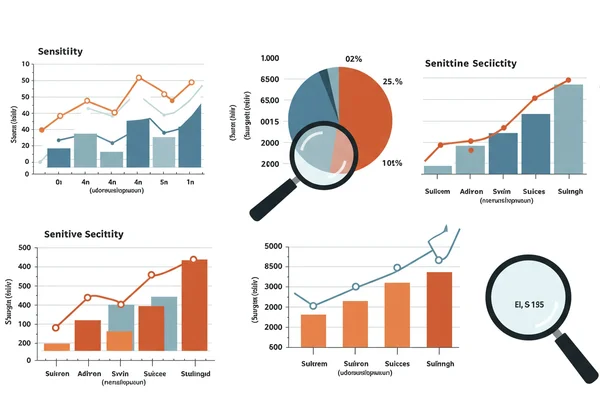ASRS Test Validity: Reliability & Your ADHD Screening
September 7, 2025 | By Miles Harrison
When you find yourself questioning patterns in your attention, focus, or organization, turning to an online tool is often the first step. But in a sea of quizzes and assessments, a critical question arises: can you trust the results? This is especially true for the Adult ADHD Self-Report Scale, a widely used tool for exploring adult ADHD symptoms. So, how accurate is the ASRS ADHD test? The answer lies in its scientific foundation, built on decades of psychological research into its validity and reliability.
Understanding the science behind this screening tool is essential. It’s the difference between taking a random online quiz and using a credible instrument to gain meaningful self-insight. This guide will unpack the validity and reliability of the Adult ADHD Self-Report Scale (ASRS), showing you why it’s a trusted starting point for millions. If you're ready to explore your own attention patterns, you can start the test here on our platform.

What Does ASRS Test For? Understanding the Scale's Purpose
Before diving into its scientific credibility, it's vital to understand what the ASRS is designed to do. At its core, the ASRS is a screening instrument. It is engineered to help adults identify symptoms that are consistent with Attention-Deficit/Hyperactivity Disorder (ADHD). It is not a diagnostic tool but rather a structured way to measure and reflect upon personal experiences related to inattention, hyperactivity, and impulsivity.
The purpose of this scale is to provide a clear, evidence-based snapshot of your recent experiences. By asking questions about real-life situations—like difficulty finishing projects, trouble relaxing, or feeling fidgety—it translates subjective feelings into quantifiable data. This data can serve as a powerful conversation starter with a healthcare professional, providing a solid foundation for further evaluation.
The Genesis of ASRS v1.1: WHO & Harvard's Contribution
The credibility of the ASRS v1.1 begins with its origin. This isn't a quiz created by an unknown source; it was developed in partnership with the World Health Organization (WHO) and researchers from Harvard Medical School. This collaboration was part of a broader effort to create reliable psychiatric assessment tools for use in diverse populations worldwide.
The involvement of these prestigious institutions ensures that the questionnaire is grounded in rigorous scientific methodology. The questions were carefully selected and refined to align with the diagnostic criteria for ADHD in adults as outlined in the Diagnostic and Statistical Manual of Mental Disorders (DSM), the standard classification used by mental health professionals. This authoritative backing is what separates the WHO ASRS from countless other online assessments.

Identifying Adult ADHD Symptoms: What ASRS Assesses
So, what exactly does the adult adhd selfreport scale look for? The 18 questions are strategically divided to assess the core symptom clusters of adult ADHD. These questions probe into two primary areas:
- Inattention: This includes challenges with maintaining focus, organizational difficulties, forgetfulness in daily activities, and a tendency to be easily distracted. Questions might ask how often you make careless mistakes or have trouble sustaining attention in tedious tasks.
- Hyperactivity and Impulsivity: This covers feelings of inner restlessness, an inability to sit still, excessive talking, and acting without thinking through the consequences. The scale will ask about behaviors like interrupting others or feeling constantly "on the go."
By answering these questions based on your experiences over the past six months, you create a profile of symptoms. This structured approach helps you and potentially a clinician understand the frequency and severity of behaviors that might be impacting your life. To see how these questions relate to your own experiences, you can take the free ASRS test.
ASRS Test Validity: Is It Measuring What It Claims?
In the world of psychological assessments, the validity of the ASRS scale is a crucial concept. In simpler terms, validity addresses whether a test accurately measures what it's supposed to measure. For the ASRS, this means confirming that it effectively measures symptoms of adult ADHD and not something else, like anxiety or general stress, although those conditions can co-occur.
A test with high validity is one that has been shown through research to be a true and accurate reflection of the construct it assesses. For users, this means you can be confident that a high score on the ASRS is a meaningful indicator of ADHD-related symptoms. It’s this scientific assurance that makes the tool more than just a simple checklist; it’s a validated screening instrument.
Different Types of Validity for ADHD Screening Tools
Psychometricians evaluate validity in several ways to ensure a tool is robust. For an adhd selfassessment, two types are particularly important:
- Construct Validity: This confirms that the test aligns with the underlying psychological theory of ADHD. Researchers have verified that the ASRS questions effectively tap into the known dimensions of inattention and hyperactivity/impulsivity.
- Criterion Validity: This assesses how well the test's results correlate with an external, established benchmark—in this case, a formal clinical diagnosis. Numerous studies have demonstrated that ASRS scores are highly consistent with diagnoses made by trained clinicians.
These validation processes are what give the ASRS its scientific weight. They ensure the tool is not just asking relevant questions but that the answers provide a meaningful and accurate picture.
ASRS Accuracy: Evidence from Clinical Studies
The question of ASRS accuracy has been a subject of extensive research. Clinical studies published in peer-reviewed journals have consistently found that the ASRS v1.1 is a highly effective screening tool. Research has shown it has strong "sensitivity" (the ability to correctly identify individuals who likely have ADHD) and "specificity" (the ability to correctly identify those who likely do not).
This body of evidence confirms that the ASRS can reliably distinguish between adults who exhibit significant ADHD symptoms and those who do not. This accuracy is why it's used not only for self-screening but also in clinical settings to help professionals make informed decisions about further diagnostic steps. If you're seeking a scientifically supported first step, you can get a reliable screening on our platform.

ASRS Test Reliability: Consistent Results for ADHD Self-Assessment
Alongside validity, the reliability of the ASRS is the other pillar of a trustworthy assessment. Reliability addresses consistency. It asks, "If I took this test under similar conditions, would I get a similar result?" A reliable tool produces stable and consistent scores, meaning the results aren't just random noise.
For someone exploring their mental health, reliability is paramount. It ensures that the insights you gain from this ADHD self-assessment are dependable. If a screening tool produced wildly different results from one day to the next, it would be useless. The ASRS has been proven to have high test-retest reliability, meaning scores remain stable over time, assuming the underlying symptoms haven't changed.
What Makes an ADHD Self-Assessment Reliable?
Several factors contribute to the reliability of an ADHD selfassessment. The ASRS excels in these areas:
- Clear and Unambiguous Questions: The wording of each question is precise to avoid misinterpretation.
- Standardized Scoring: The scoring system is objective and consistent for every user.
- Specific Timeframe: By asking about the "past 6 months," it grounds your answers in a consistent period, reducing fluctuations based on daily mood.
These design elements minimize random error and ensure that the final score is a true reflection of your reported experiences.
Interpreting Your ASRS Results with Reliability in Mind
When you receive your results from an online ASRS screening, remember that reliability means the score is a consistent measure of what you reported. However, it's a snapshot. Your symptoms can be influenced by stress, sleep, or life events. A reliable test provides a solid baseline, a starting point for reflection.
Our platform goes beyond just a score. After completing the test, you receive a unique AI-powered report that analyzes your response patterns, offering deeper insights than a simple number. This report, grounded in a reliable assessment, can help you better understand your personal challenges. You can see your results and get your personalized AI report after the test.
The ASRS Test: A Screening Tool, Not a Diagnosis
It's crucial to understand that the ASRS is an online ADHD screening tool, not a diagnostic one. A screening tool is designed to identify individuals who may be at risk for a condition and who would benefit from a more thorough evaluation. It's a highly effective first step, but it is not the final word.
A formal ADHD diagnosis can only be made by a qualified healthcare professional, such as a psychiatrist, psychologist, or neurologist. They use a comprehensive evaluation process to make a determination. The ASRS provides valuable information to bring to that appointment, but it cannot replace professional medical advice.
The Importance of Professional ADHD Diagnosis
A professional clinical evaluation is essential for several reasons. A clinician will conduct a detailed interview, review your personal and medical history, and rule out other conditions that can mimic ADHD symptoms, such as anxiety, depression, or thyroid issues. What feels like ADHD isn't always ADHD, and a professional is trained to make that distinction.
Think of your ASRS results as a well-organized set of notes to bring to your doctor. The personalized AI report from our platform can be especially helpful, as it breaks down your responses into clear patterns. This empowers you to have a more productive and informed conversation with a healthcare provider, helping you start your journey toward clarity.

Empowering Your Journey: Trusting Your ASRS Test Insights
Navigating the possibility of adult ADHD can feel overwhelming, but you don't have to do it with unreliable tools. The Adult ADHD Self-Report Scale (ASRS v1.1) stands apart because of its robust scientific backing. Its proven validity and reliability mean you can trust it as a credible first step in understanding your attention and focus.
It accurately measures what it sets out to—symptoms consistent with adult ADHD—and provides consistent results you can depend on. While it's a powerful screening tool and not a diagnosis, the insights it offers are invaluable. They can empower you with the knowledge and confidence to seek professional guidance.
Are you ready to take a confident, science-backed step toward self-understanding? Take the ASRS test now and receive your instant, confidential AI-personalized report to begin your journey.
Frequently Asked Questions About ASRS Test Reliability & Accuracy
How accurate is the ASRS ADHD test?
The ASRS v1.1 is considered a highly accurate screening tool. Numerous clinical studies have demonstrated its strong validity, meaning it effectively measures the symptoms of adult ADHD. It shows high sensitivity and specificity, allowing it to reliably identify adults whose symptoms are consistent with ADHD and warrant further clinical evaluation.
How reliable is the ASRS?
The ASRS has demonstrated high reliability. This means it produces consistent and stable results over time. If you take the test on different occasions without significant changes in your life or symptoms, your scores should be similar. This consistency makes it a dependable instrument for self-assessment.
What age is the ASRS test for?
The ASRS is specifically designed and validated for adults aged 18 and older. The questions and response criteria are tailored to the life experiences and challenges faced by adults with potential ADHD symptoms in work, social, and home environments. Our platform offers a free ADHD test for adults based on this standard.
What is a positive score on the ASRS assessment?
A "positive" or high score on the ASRS assessment indicates that you have reported a significant number of symptoms consistent with adult ADHD. It does not mean you have ADHD. Rather, it suggests that your experiences align with the condition and that a conversation with a healthcare professional for a formal diagnostic evaluation is a recommended next step.